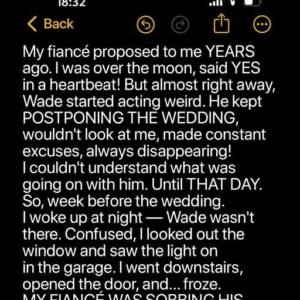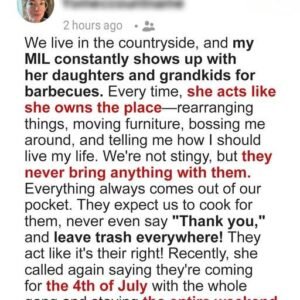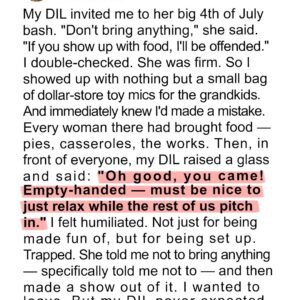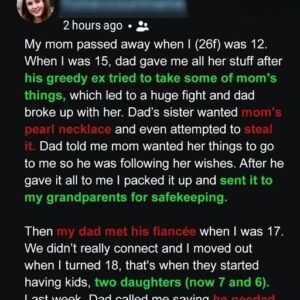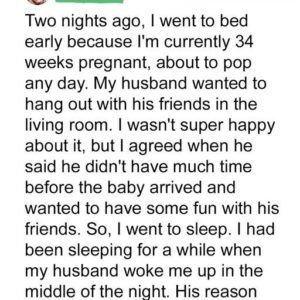Daniel Hayes turned around slowly, his tired eyes narrowing as they fell upon a thin boy in torn clothes, his bare feet covered in city dust. The boy couldn’t have been older than nine. His face was streaked with grime, but his eyes—his eyes were steady, filled with something Daniel hadn’t seen in a long time: conviction.
It had been six months since Daniel’s daughter, Sophie, lost her ability to walk. A spinal infection had damaged her nerves, and despite every treatment money could buy, the doctors had delivered the same verdict: “She’ll never walk again.”
Daniel, a real estate developer worth millions, had watched helplessly as his once-bubbly little girl grew quiet and withdrawn. Her laughter had been replaced by silence, her room filled with therapy equipment that offered no progress.
That afternoon, as he sat on the bench outside St. Luke’s Hospital, the weight of failure pressed on him. For the first time in his life, his wealth meant nothing. That was when the boy appeared.
Daniel frowned. “What did you just say?”
“I can help her walk,” the boy repeated, his tone steady despite the cold wind whipping through the street.
Daniel almost laughed, but there was something about the boy’s calmness that made him pause. “And how exactly will you do that? You’re not a doctor. You’re just a kid.”
The boy nodded. “I know. But I’ve helped before. My little sister—she couldn’t walk after an accident. The doctors gave up. I didn’t.”
Daniel looked at him skeptically. “And now she’s running marathons, I suppose?”
The boy smiled faintly. “Not marathons. But she walks. Because I didn’t let her stop trying.”
Something in those words cut deep. Daniel had seen countless specialists who spoke only in medical terms—none with that kind of faith.
After a long silence, Daniel sighed. “What’s your name, kid?”
“Zeke,” the boy said.
“And what do you want from me, Zeke?”
“Just one chance,” Zeke said simply. “Let me meet her.”
Daniel hesitated, torn between reason and desperation. He knew it was absurd, but the thought of refusing somehow felt wrong.
Finally, he stood up. “Fine,” he said quietly. “Come with me.”
When they entered Sophie’s hospital room, she was sitting by the window, her thin legs covered by a blanket. Her face lit up with curiosity when she saw Zeke.
“Hi,” Zeke said softly, walking up to her bedside. “I’m Zeke. I heard you used to love running.”
Sophie blinked in surprise. “I did. But I can’t anymore.”
Zeke smiled gently. “Maybe you can again.”
Daniel watched in silence, his heart pounding. For the first time in months, he saw something flicker in his daughter’s eyes—hope.
And right then, Daniel realized this boy—this strange, fearless boy—might just be the last miracle he hadn’t tried.
Zeke began visiting every morning. The nurses whispered, amused by the sight of a ragged street boy walking confidently through the pristine corridors of St. Luke’s, heading straight for the VIP pediatric ward. But Daniel allowed it. Something about Zeke’s presence brought warmth back into Sophie’s days.
They started small. Zeke would sit beside her bed, talking about his life on the streets—how he and his sister used to make a game of running through the alleyways barefoot, how she cried when she first fell but always got back up.
“You see,” Zeke told her one morning, “your legs need to remember what joy feels like. That’s the secret. They stopped trying because you stopped believing they could.”
Sophie giggled. “That sounds silly.”
“Maybe,” Zeke said, grinning. “But silly sometimes works.”
He began showing her little exercises—not medical ones, but playful ones. Tapping her feet to the rhythm of music, pretending to “kick clouds” or “dance on air.” The physical therapist was skeptical but noticed something unusual—Sophie’s mood improved dramatically. Her muscle tone started to change.
Daniel stood by every session, his skepticism slowly giving way to wonder. Zeke had no degrees, no training—only persistence.
One afternoon, Sophie managed to lift her right foot an inch off the bed. The nurse gasped. Daniel’s eyes filled with tears.
Zeke simply smiled and said, “Told you she could.”
But Zeke never took credit. When Daniel offered him money, he refused every time. “Just buy Sophie some crayons,” he’d say. “She likes drawing, right?”
Over time, Zeke became like family. Daniel arranged meals for him, even a small jacket when the nights grew cold. But Zeke always returned to the streets. “Other kids need help too,” he’d explain with that same quiet dignity.
Then one day, Sophie said, “Daddy, I want to try standing today.”
The room fell silent. Daniel’s heart pounded as Zeke crouched beside her.
“You ready?” he whispered.
Sophie nodded, gripping Zeke’s hands. Slowly—shakily—she pushed herself upward. Her knees trembled, her breath quickened, but she stood.
Daniel froze. His lips parted, unable to speak.
Then Sophie looked at him through tears. “Daddy, I’m standing.”
Daniel’s world stopped. He dropped to his knees and pulled her into his arms.
That moment—the impossible happening before his eyes—was the miracle he’d been waiting for.
Sophie’s recovery became the talk of the hospital. The doctors were baffled, calling it “psychological motivation,” but Daniel knew it was something deeper—faith rekindled by a boy who refused to stop believing.
Zeke continued to visit for weeks, helping Sophie take her first steps along the hallway. Each one was unsteady but real. The joy on her face was brighter than anything Daniel had ever seen.
Eventually, Sophie was discharged. She could walk—slowly, carefully, but without assistance. Daniel wanted to thank Zeke properly.
He found the boy one cold evening, sitting by a lamppost, handing a sandwich to a smaller child.
“Zeke,” Daniel said gently, kneeling beside him. “You changed our lives. Let me help you now. Come live with us. Go to school. You deserve that.”
Zeke looked down, silent for a moment. “Thank you, sir. But I can’t. Not yet. There are other kids out here—kids like my sister—who need someone to believe in them.”
Daniel felt a lump rise in his throat. “Then at least let me know where to find you.”
Zeke smiled. “You already have. I’m the boy who believed your daughter could walk.”
And with that, he stood and disappeared into the night.
Months later, Sophie ran—actually ran—across the park toward her father. She was laughing again, free. Daniel’s heart overflowed.
Every time he saw a barefoot child on the street, he’d stop and look closely, hoping it was Zeke. But he never saw him again.
Still, Daniel would often say, “Some people chase miracles with money. I met one wearing torn shoes.”
And somewhere out there, a small boy with kind eyes was probably smiling, knowing he didn’t just make a girl walk—he taught a man to believe again.
